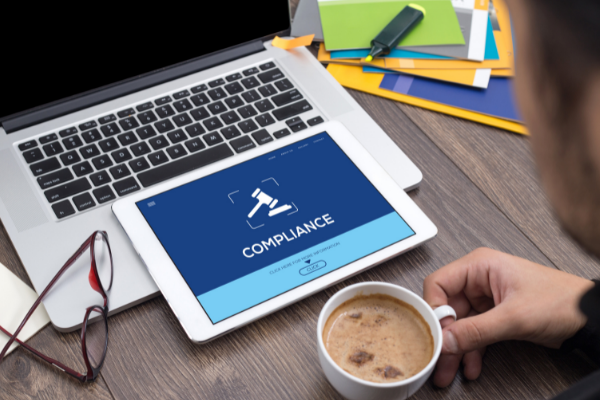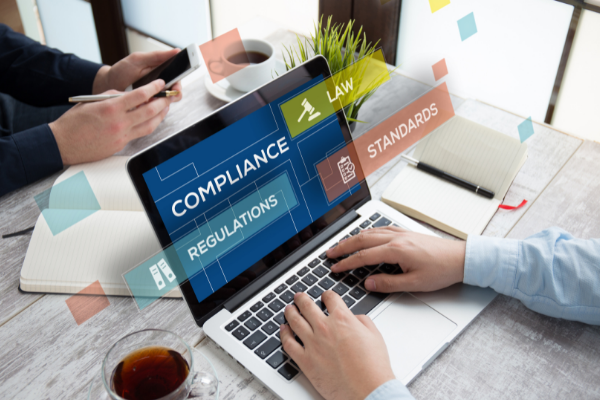BY:
SHARE:

The UK Regulations require that the Exporter named on the Customs Declaration is responsible for obtaining a license for Strategic Goods, which are to be sent to a destination outside the UK.
Obtaining the licence is only part of the requirement. The exporter’s approval must be declared to HMRC in Data Element 2/3 for an export submitted to the Customs Declaration Service (CDS).
Classifying the product is vital to establish if a licence is required. Although there are several sections to review, the two lists that will be relevant in many instances are the Military and Dual Use Lists. An item cannot be controlled under both criteria, so it is essential to understand how each of these potential headings is defined.
What makes a product (not forgetting Technology and Software) Dual Use will entail a technical assessment, and the team or individual responsible must ensure that they have the technical information relating to the goods and sufficient knowledge of the Dual Use categories to reach a conclusion.
Dual-use controls are applicable in many countries worldwide in conjunction with a nation’s Military Regulations. An exporter must know the rules and licensing whilst conducting Due Diligence on their sales and transfers.
The added requirement must be checked and adhered to in the US regulations. Suppose a product is controlled under the International Traffic in Arms (ITAR) or Export Administration Regulations (EAR). In that case, the requirement for US approval and the exporting country’s rules must be established and addressed. Even goods classified as EAR99 could require a US license in certain circumstances.
The Export Administration Regulations Commerce Control List (or CCL) could be described as the Dual Use list with additions. The extra items that form part of the Commerce List are due to the Export Control Reform undertaken by the US Government under the President Obama administration.
Items controlled in the CCL will be identified with an Export Control Classification Number or, as the reference is more commonly known, an ECCN. Some classifications appear on the UK, EU, and US lists. 5a002a1 is an example of this. However, only the Commerce Control List uses the term ECCN: the UK and the EU reference Dual-Use classifications but not the ECCN acronym. Clarity is important.
When should the ECCN terminology be applied?
It is when the goods, software or technology are controlled under the US Regulations. Although it is essential to acknowledge and comply with the requirements of the US Extra Territoriality Controls, it is also important to clarify when the Export Administration Regulations apply to a product. Goods of US Origin and US Design and goods exported from the United States, regardless of origin, would be regulated under the US Regulations. The EAR99 classification is sometimes misunderstood, and due diligence must be undertaken for goods classified under this US-specific identification.
Because of the Export Control Reform, obtaining a classification that does not feature on the UK and EU Lists is possible. ECCN 5A992 is one example. This would mean that the exporter would need to check that the inherent capability of the product does not control the goods under another section of the Dual-Use List that is relevant to the UK and, if applicable, EU Controls.
The technical classification of a product should be thorough and cover the exporting country’s regulations, together with the potential for goods to be controlled under US regulations.
Receiving information from a supplier is equally relevant as the buyer checking if export controls apply. Information should be passed down the supply chain because export controls continue when a buyer becomes the seller of the purchased product or newly manufactured goods.
US Controls will go further. A product classified with an ECCN embedded or incorporated into a higher assembly of non-US controlled content would be subject to De Minimis controls.
If a business does not have clarity on the classification of goods delivered to their organisation, it is unknown what controls apply to goods. This could lead to potential non-compliance or further delays in the supply chain while the information is clarified.
Classification can be time-consuming, but it is essential in export control compliance.
If you are interested in exploring this topic further, you might find it worthwhile to consider the training courses and live clinics offered by Strong & Herd LLP:
OneCall™ Email assistance as and when required; A one-call solution for all your import, export and customs enquiries. Export help. Import help. Customs help.
Stay informed about customs and international trade matters by subscribing to our OneCall™ service. This comprehensive offering includes a dedicated email helpline for support, timely practical updates direct to your inbox (Did You Know?), monthly UK Customs & Trade Briefings and access to an interactive members' area with an exclusive community for our subscribers.
International Trade Updates & Spotlight Newsletter
Subscribe to our free information emails covering international trade topics...
MORE INDUSTRY INSIGHTS...











